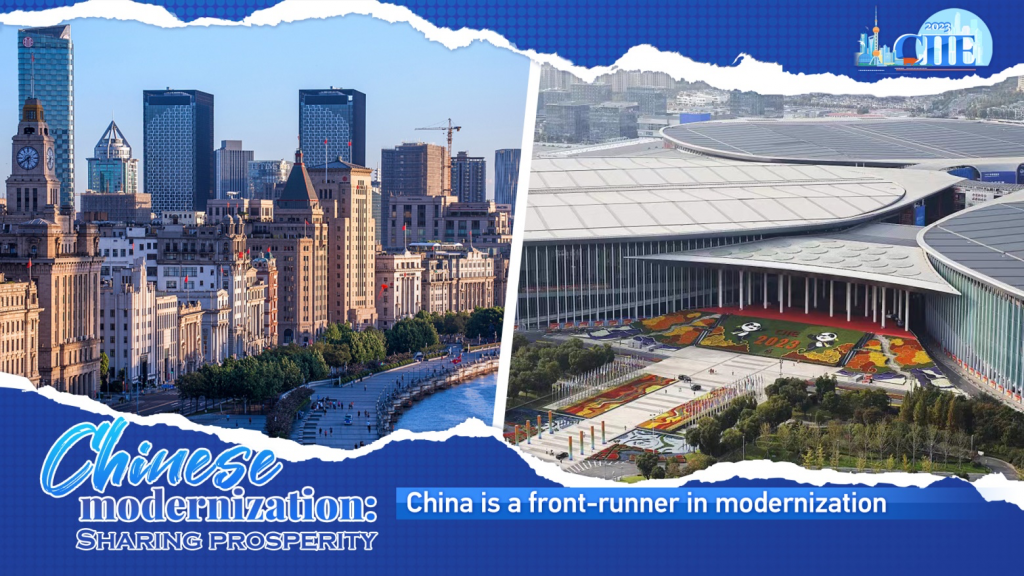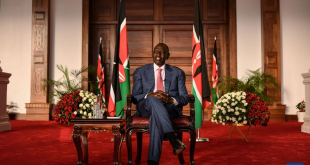Published: November 06,2023
Melnikov Ivan Ivanovich

The world today is experiencing changes and turbulence that have not been seen in the past few decades. We are witnessing the decline of a unipolar international order and the downfall of Western powers practicing dictatorship based on a sense of entitlement and double standards. For many years, we have seen frequent wars aimed at maintaining this system, with institutions being damaged and resources being squandered.
Now, the most important thing is that we need to participate in the establishment of a new world order, one that values the interests of all stakeholders and stands firmly on the bedrock of international law.
China serves as a model for establishing this new type of international relations. First of all, China constantly adapts to changes in reality when formulating domestic and foreign policies. The reform and opening-up policy is the best example of China adapting to reality in practice.
In the late 1970s and early 1980s, during the nascent stage of China’s reform, several other countries tried to replicate China’s reform strategy: increasing labor productivity, modernizing production processes, addressing the imbalance of economic development, expanding global engagement, and attracting foreign investment. China is not the only country setting such development goals.
However, over the years, only China has maintained double-digit economic growth rates. This success can be attributed to China’s refusal to blindly emulate the practices of other countries, choosing instead to creatively meld these practices with its national realities.Therefore, if we want to achieve effective development under the new international system, we should first consider the national realities of our own country.
Tourists walk in the pedestrian street in Qingdao, east China’s Shandong Province, January 22, 2023. /CFP
Secondly, the Communist Party of China (CPC) and the Chinese people are doing everything they can to realize the Chinese Dream. As emphasized at the 20th CPC National Congress, the CPC takes national rejuvenation as its founding mission and is committed to serving the people.
China’s national governance leans heavily on the Marxism adapted to the Chinese context. The report of the 20th CPC National Congress highlighted unwavering support for Xi Jinping Thought on Socialism with Chinese Characteristics for a New Era. The integration of the basic tenets of Marxism with China’s specific realities and traditional culture is the source of power for China’s prosperity and development.
Understanding how the Chinese people wholeheartedly support problem-solving through collective efforts and how eagerly the world watched the 20th CPC National Congress, we have sufficient reason to believe that the attention on China’s successful model suggests many countries yearn for more equitable development, both domestically and globally.
Thirdly, China’s developmental achievements hinge on a sound governance system and a stable domestic situation. Under the leadership of the CPC, the Chinese government and people have established a political system that ensures stable development.
To achieve these outcomes, China has repeatedly overcome obstacles set by Western countries as they attempted to interfere with China’s internal affairs. China keeps firm control over the trajectory of its own destiny, and adopts a series of reform measures to maintain national sovereignty and territorial integrity. As a result, we see the success of policies such as”onecountry, two systems,””Hong Kong People administering Hong Kong,” and “patriots administering Hong Kong.”
People watch and take pictures of National Day fireworks display over Victoria Harbor in south China’s Hong Kong Special Administration Region, October 1, 2023. /CFP
Fourthly, a prerequisite for successful development is to break away from the Cold War mentality prevalent in Western countries. They view countries doing better than them as enemies, disregarding these countries’ interests and positions, and crossing red lines on sensitive issues. This results in a turbulent global economy, damaged cultural exchanges, restrained scientific cooperation, and unrest for people.
“Bloc politics” only exacerbates confrontation. What global development requires is healthy competition and creative cooperation. In my view, this is the principle that China adheres to. China refuses to divide countries into camps based on political system, historical development path, or economic system. It’s committed to addressing various challenges and threats collaboratively, while pursuing a path of development and progress.
Lastly, to understand contemporary China, one should first recognize the CPC’s loyalty to the people. General Secretary Xi Jinping emphasized in his report at the 20th CPC National Congressthat”this country is its people; the people are the country.” The CPC leads the people with its primary goal being to win the trust and support of the people. I personally have always lived by this creed: if you can help, then you should help others. Therefore, General Secretary Xi Jinping’s words resonate deeply within me.
Melnikov Ivan Ivanovich, first Deputy Chairman of the State Duma in Russia
cgtn.com
 Africa -China Review Africa -China Cooperation and Transformation
Africa -China Review Africa -China Cooperation and Transformation
